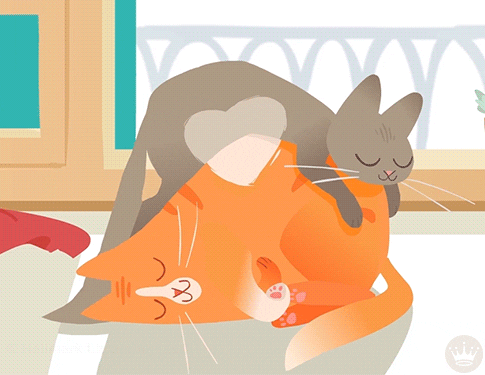What makes a relationship thrive?
Plus, this personality trait might make you averse to bribery
“We have to get beyond this idea that making mistakes is somehow indicative of not being smart, not competent, not belonging. The most accomplished people in the world have all experienced failure at some point.” — Psychologist Kevin Cokley
BRAIN WAVES
The good fight. Think about the last time you fought with your partner. How did you respond to each other? Researchers wanted to look at how couples engage in conflict, and what effect it has on the relationship. They invited volunteers into the lab and had them engage in a conflict. Then they measured their “interpersonal complementarity,” which is the way people’s behavior works together during an interaction. In general, the couples tended to complement each other’s behavior. For example, if one person showed warmth, their partner responded with warmth. If one person was more assertive, their partner was less assertive, allowing them to dominate the conversation. That much wasn’t surprising, but the researchers also found the couples who matched each other’s warmth were much happier in their relationships. And this wasn’t true for dominance complementarity. “Warmth complementarity was found to significantly predict relationship satisfaction and other related constructs, including intimacy, respect, goal compatibility, commitment, trust, partner validation, partner empathy, engaging in sex for emotion and connection, and greater overall love,” Psypost reported. “And keep in mind that this warmth complementarity was assessed every few seconds during a single 8 minute interaction they had in our lab,” said lead author Erica Slotter. “This means that the way we interact with our partners in these small ways can have downstream consequences for how we feel about our relationship in general.”
Highway bribery. A new study finds that people who are prone to guilt are also less likely to take bribes. In two online experiments, researchers had students play economic games that also measured personality traits. The first study found a negative association between being guilt-prone and accepting bribes, and the second study revealed that this finding was related to people’s concern for the suffering of others. The study’s lead author, Xiaolin Zhou of East China Normal University, pointed out that the findings aren’t necessarily correlational. But they do shed light on the underlying mechanisms of corrupt behaviors. “Our results have important implications for current world events, particularly in the realm of politics and governance where corruption and bribery are major concerns,” Zhou said.
Hidden Brain+ is here! Do you love the ideas we explore on Hidden Brain and want more of them? Then please join Hidden Brain+, our new podcast subscription. You’ll find new episodes not available anywhere else, plus the chance to have your questions answered by the researchers we feature on the show. Find Hidden Brain+ on the Apple Podcasts app beginning today, and listen to our first two episodes for free with a seven-day trial.
ON THE HIDDEN BRAIN PODCAST
Success 2.0: The Psychology of Self-Doubt: We all have times when we feel like a fraud. Psychologist Kevin Cokley studies the corrosive effects of self-doubt, and how we can turn that negative voice in our heads into an ally.
ON THE MY UNSUNG HERO PODCAST
Pierce Forde’s Story: "The first words he said to me, he said, 'You'll be okay, brother.'" Pierce Forde remembers the stranger who stayed by his side after a motorcycle accident in 1991.
Don’t forget to send us the story of your unsung hero! Record a voice memo on your phone and email it to myunsunghero@hiddenbrain.org.
ON HIDDEN BRAIN+
The Case for Optimism: Why is it that we think of optimists as idealistic pollyannas who are out of touch with reality? We kick off our new Apple Podcasts subscription, Hidden Brain+, by chatting with Morgan Housel about our bias toward negativity — and how we can resist its pull.
Your Questions Answered: Bob Cialdini on Persuasion: We recently talked with psychologist Bob Cialdini, who has identified seven techniques that we regularly use to persuade other people to do something. Today on Hidden Brain+, Bob comes back to the show to answer listeners’ follow-up questions. We ask Bob how to use persuasion techniques to get our kids to do what we want. And we ponder how to use these strategies to get ourselves to do something we’re avoiding.
FROM OUR LISTENERS
MIND GAMES
What can you hold in your left hand but not in your right?
LAST WEEK’S PUZZLE
I speak without a mouth and hear without ears. I have no body but I come alive with the wind. What am I?
The answer: An echo
A MOMENT OF JOY
Want to help out some fish? Here’s a live camera of a canal in the Netherlands where fish often hang out, waiting for a gate to open so they can migrate and reproduce. “That is why there is a camera under water at the lock. Are there fish in the picture? Press the bell. The lock keeper received a signal and, if there are many fish, will open the lock,” the website says. Talk about a live stream.
Have an idea for Hidden Brain? A story you want to share with us? Send an email to ideas@hiddenbrain.org. Listen to us on Spotify, Apple, Amazon Music or your favorite podcast platform.



